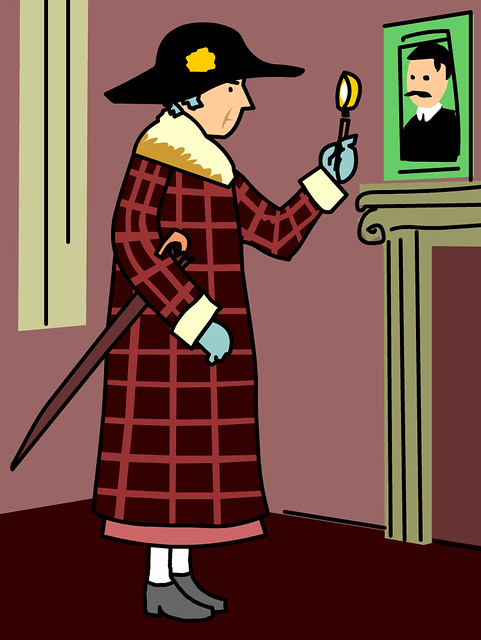For my upcoming trip, the tasks I need to complete are: review several papers, work on a paper due in a few weeks, take notes in meetings, and keep up with the usual barrage of emails. To prepare, I've found a few applications to help make being laptop-less, and at many times network-less, a bit easier.
1. Dropbox for iPad
This is just about the most useful application ever invented. I know, I know, rsync has been around since dinosaurs roamed the earth, but honestly I just never found it usable. I use too many different operating systems and machines and devices that rsync-based solutions were just a nightmare.
Dropbox has been positively a joy to use. For this trip, on my laptop I downloaded the papers I need to review into my Dropbox folder. Then I synchronized them to my iPad/phone.
Also, most all of my past papers and work-in-progress papers (including my thesis) are stored in Dropbox. I guess this is a bit risky in case they're evil or their servers go down, but it's just a gem when traveling.2. iAnnotatePDF
From Dropbox, you can send PDF files directly to iAnnotatePDF. I really like to use this application when reviewing papers, because I can put text notes in the margin, circle and highlight things, etc. I mostly use it for commenting on papers written by colleagues and students, but sometimes I use it for conference and journal reviews.
Its cloud support is a bit weak. Your workflow turns out to be DropBox -> iAnnotatePDF -> [Annotate stuff] -> GoodReader -> Dropbox.
3. GoodReader
This is the best $.99 you'll ever spend. It strangely claims to be a PDF reader, but really it's a just nice way to access the filesystem, and read/write files to Dropbox, GoogleDocs, WebDAV, and whatever else cloud service you might use. You also can use it as a nice wget/fetch service (e.g., grabbing files off the net and storing them on your iPad). It's indispensable.
 |
| Remember my last post about pseudo-anonymity? I figured handwriting recognition would fail if I wrote like a 10 year old. I'll have you know I am a Picasso in real life. |
Honestly, I didn't get this application for the audio recording feature (though that is nice), I got it because you can both take notes with typing as well as sketch with your finger in the same document. I tried about 10 different note taking apps, and this was the only one that handled this feature well.5. Instapaper
Every time I see an article I want to read but don't have the time for, I have a little function in all my web browsers, "Save to Instapaper". It pulls down the text (sans advertisements), syncs to a server, and then syncs to all my mobile devices. Then when I'm sitting around in airports I catch up on articles.
I also use Instapaper when I want to save local information about the city I'm traveling to and might not have net, such as train schedules. Sometimes I use Dropbox for that too, but Instapaper is even more convenient because it's a simple one-click process.6. RSS
I am still looking for a good RSS reader that syncs with Google Reader. I've just found Mobile RSS which seems pretty decent at first glance. I was using Reeder for awhile, because everyone was singing its praises, but I found it to be too minimal - to the point of being unusable. A few people spoke highly of Byline, but the one time I tried it my finger slipped and I unwittingly did something awful, like, marking several hundred articles as read or unsubscribing to some feeds. I thus deleted the application in a big puff of disgust.
I'm all ears if anyone has RSS reader suggestions.7. Off Maps / OpenStreetMap / OpenMaps
A colleague recommended some open maps apps (heh) to me, and I'll be giving them a shot on this upcoming trip. I'm more inclined to just suffer roaming charges and use Google Maps, but I like the idea of open source maps, and will give it a shot.8. VLC
This is a jack of all trades video player. It's probably the most useful app I have on my laptop, so I'm thrilled to have it on the iPad. It's great for copying video files to your iPad that you don't feel like converting to some goofy iTunes format (e.g, AVI, XviD, etc).9. iSSH
This application is indispensable when traveling. With it I can connect to machines anywhere in the world, easilly get a shell, tunnel stuff, get a nice VNC connection to someplace, etc. Well worth the $10.I think that's it. I'm still working on a workable LaTeX solution, which hopefully I'll figure out by the time I write Part 3 in this series.
Sadly blogger is practically unusable from the iPad, so I probably won't be around much for the next week or two. There are a few blogging apps, but I'm not really ready to shell out for them - I'd rather just google give better support native editing on the iPad. *ahem, evil overlords, ahem*.
Hope you all have a good week and see you soon.





